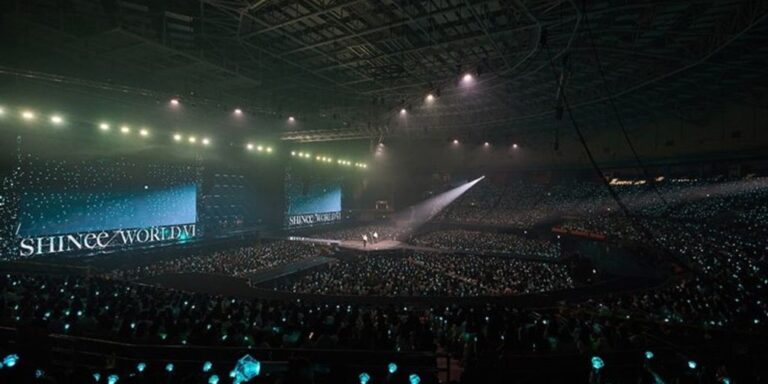
K-Pop has taken the world by storm, not just with its catchy tunes and impressive choreography, but also with the intricate production process behind each hit song. From the initial songwriting stages to the final marketing push, producing a K-Pop track involves a multitude of talented individuals working together. This article takes you behind the scenes to explore the various stages and the key players involved in the making of your favorite K-Pop songs.
Key Takeaways
- K-Pop song production is a highly collaborative effort involving multiple songwriters, composers, and producers.
- The recording studio experience for K-Pop involves advanced vocal recording techniques, instrumental tracking, and sound engineering.
- Music arrangement and production in K-Pop include beat making, layering, mixing, and the use of cutting-edge technology.
- Global collaboration is a significant aspect of K-Pop, with international producers and cross-cultural influences playing a crucial role.
- Producers have a substantial impact on K-Pop hits, often developing signature styles and maintaining close relationships with artists.
The Role of Songwriters and Composers
K-Pop songs are often created by a team of talented songwriters and composers. These individuals work together to craft the catchy tunes and memorable lyrics that fans love. Behind every successful K-Pop act is a creative team helping compose the music.
Collaborative Songwriting
In K-Pop, songwriting is a team effort. Multiple songwriters come together to brainstorm ideas and create the perfect song. This collaboration allows for a mix of different styles and influences, making each song unique.
Melody and Harmony Creation
Creating the melody and harmony is a crucial part of songwriting. Composers work on crafting the tune that will catch the listener’s ear. They also ensure that the harmony complements the melody, creating a pleasing sound.
Lyric Writing
The lyrics of a K-Pop song are just as important as the music. Lyricists write words that resonate with fans and match the song’s mood. They often work closely with the composers to make sure the lyrics fit perfectly with the melody.
The Recording Studio Experience

Recording a K-Pop song is an exciting journey. Artists often visit famous studios like King Studio in Gangnam. Here, they can record their own songs and even make a self-music video. The process involves several steps to ensure the best quality.
Vocal Recording Techniques
In the studio, singers use special microphones to capture their voices. They might sing the same part many times to get it just right. Engineers help adjust the sound to make it perfect.
Instrumental Tracking
Musicians play instruments like guitars, drums, and keyboards. Each instrument is recorded separately. This helps in mixing the sounds later.
Sound Engineering
Sound engineers play a crucial role. They mix all the recorded sounds together. They also add effects to make the song sound amazing.
Music Arrangement and Production
Beat Making and Rhythm
Creating the beat is one of the first steps in producing a K-Pop song. Producers use various production tools and processes to craft unique rhythms that make the songs catchy and danceable. The beat often sets the tone for the entire track.
Layering and Mixing
Layering involves adding different sounds and instruments to create a rich, full sound. Mixing is the process of balancing these layers so that each element can be heard clearly. This step is crucial for making the song sound polished and professional.
Use of Technology
Modern technology plays a significant role in K-Pop music production. From software that helps in creating beats to tools that assist in mixing and mastering, technology makes the production process more efficient and creative.
The use of advanced technology allows producers to experiment with new sounds and styles, making each K-Pop song unique.
Global Collaboration in K-Pop
International Producers
K-Pop has seen a surge in international producers working with artists. This collaboration helps bring diverse sounds and styles into the music. Producers from different countries bring their unique touch, making K-Pop songs more appealing to a global audience.
Cross-Cultural Influences
The blend of different cultures in K-Pop is fascinating. Artists and producers from various backgrounds come together, creating a rich tapestry of music. This cross-cultural exchange not only enriches the music but also helps in promoting K-Pop worldwide.
Remote Workflows
With advancements in technology, remote workflows have become common in K-Pop production. Producers and artists can now collaborate without being in the same place. This flexibility allows for more creative freedom and efficiency in producing music.
The future of K-Pop lies in collaboration. There is so much potential to explore new avenues and partnerships, making the genre even more exciting.
The Impact of Producers on K-Pop Hits
Signature Styles
Producers in K-Pop often have their own unique styles. These styles can make a song stand out. For example, some producers are known for their catchy beats, while others focus on creating emotional melodies.
Producer-Artist Relationships
The relationship between a producer and an artist is very important. They need to work well together to create great music. Sometimes, producers and artists form long-term partnerships, leading to many hit songs.
Case Studies of Hit Songs
Many K-Pop hits are the result of teamwork. For instance, Girls’ Generation’s ‘I Got a Boy’ had 36 songwriters and 15 producers. This shows how collaboration can lead to amazing music.
Producers play a key role in making K-Pop songs successful. Their unique styles and strong relationships with artists help create the music we love.
The Business Side of Music Production
In the world of K-Pop, contract negotiations are crucial. Artists and producers must agree on terms that benefit both parties. This includes discussing the length of the contract, payment terms, and creative control. It’s important to have clear agreements to avoid disputes later on.
Royalties are a significant part of the music business. They ensure that everyone involved in the creation of a song gets paid. There are different types of royalties, such as mechanical royalties for physical sales and digital downloads, and performance royalties for radio play and live performances. Keeping track of these payments can be complex, but it’s essential for fair compensation.
| Type of Royalty | Description |
|---|---|
| Mechanical | For physical sales and digital downloads |
| Performance | For radio play and live performances |
Marketing and promotion are key to a song’s success. This involves creating a strategy to reach as many people as possible. Social media, music videos, and live performances are all part of this strategy. Effective marketing can make a huge difference in a song’s popularity.
The business side of K-Pop is just as important as the creative side. Without proper management, even the best songs might not reach their full potential.
Challenges in K-Pop Music Production
Time Constraints
Producing K-Pop music often involves tight schedules. Artists and producers must work quickly to meet deadlines for album releases and promotions. This can lead to long hours in the studio and a lot of pressure to deliver high-quality music in a short amount of time.
Creative Differences
In the K-Pop industry, multiple individuals contribute to a single song. This can sometimes lead to creative differences. Each person involved may have a different vision for the song, which can make it challenging to create a cohesive final product.
Maintaining Originality
With so many K-Pop songs being produced, it can be difficult to maintain originality. Producers and songwriters must constantly innovate to create fresh and unique music that stands out in a crowded market.
The K-Pop industry navigates a minefield of a powerful and opinionated new fanbase as they attempt to break into the US music market.
Conclusion
The production of K-Pop songs is a complex and collaborative process that involves a multitude of talented individuals from around the world. From the initial inspiration and songwriting to the intricate recording and production stages, every step is meticulously planned and executed to create the captivating music that fans adore. The global collaboration and diverse influences contribute to the unique and dynamic sound of K-Pop, making it a truly international phenomenon. As fans, understanding the hard work and dedication behind each track can deepen our appreciation for the music and the artists who bring it to life. We hope this behind-the-scenes look has provided you with a greater insight into the fascinating world of K-Pop music production.
Frequently Asked Questions
What is the role of songwriters and composers in K-Pop production?
Songwriters and composers are responsible for creating the lyrics, melodies, and harmonies of K-Pop songs. They often work collaboratively to blend different musical elements and styles.
How are vocals recorded in a K-Pop song?
Vocal recording techniques in K-Pop involve multiple takes, vocal layering, and the use of effects to enhance the singer’s voice. Producers ensure that the vocals are perfectly in tune and fit well with the instrumental tracks.
What is the significance of international producers in K-Pop?
International producers bring diverse musical influences and styles to K-Pop, helping to create unique and globally appealing songs. They often collaborate remotely with Korean producers and artists.
How do producers and artists maintain originality in K-Pop music?
Maintaining originality involves experimenting with new sounds, blending different genres, and adding unique elements to each song. Producers and artists strive to create music that stands out while staying true to their artistic identity.
What are the common challenges faced in K-Pop music production?
Common challenges include time constraints, creative differences, and the pressure to produce hit songs. Producers and artists must navigate these obstacles while maintaining high-quality output.
How are royalties and payments handled in K-Pop music production?
Royalties and payments are typically negotiated through contracts. Songwriters, composers, and producers receive royalties based on the usage and success of the songs. The terms can vary depending on the agreements made with the entertainment agencies.




Leave a Comment